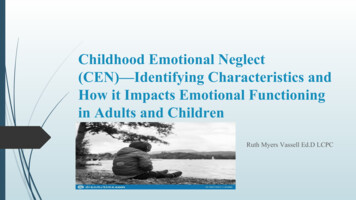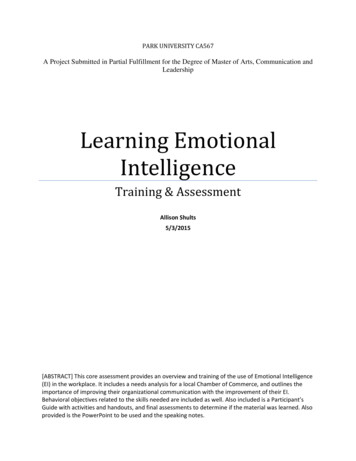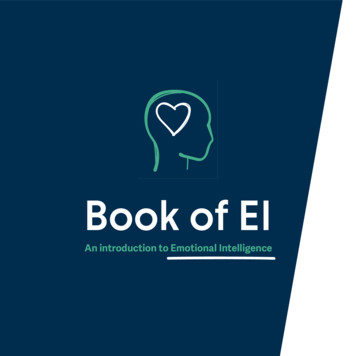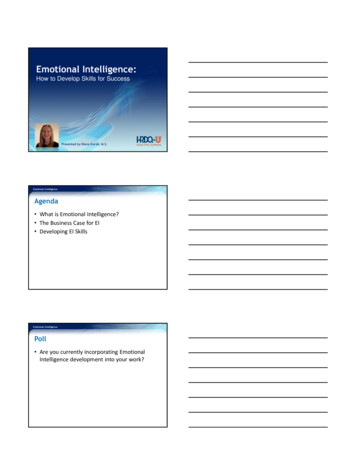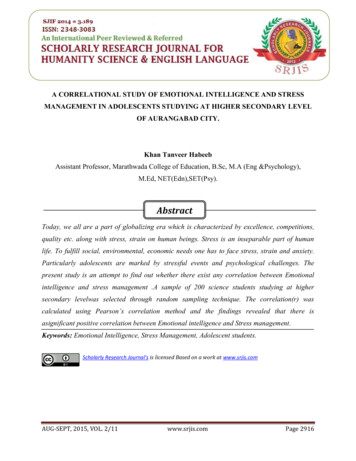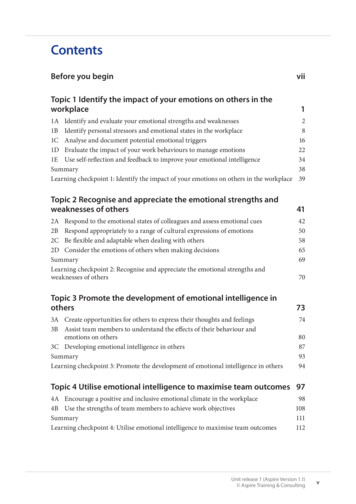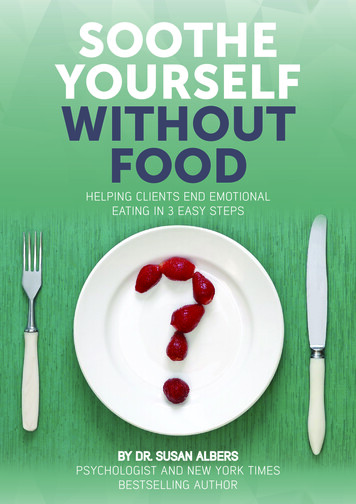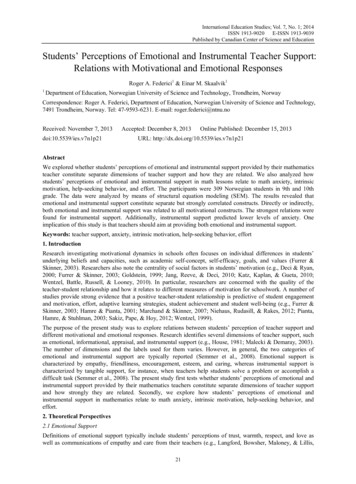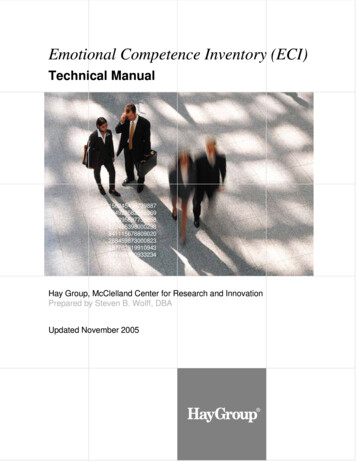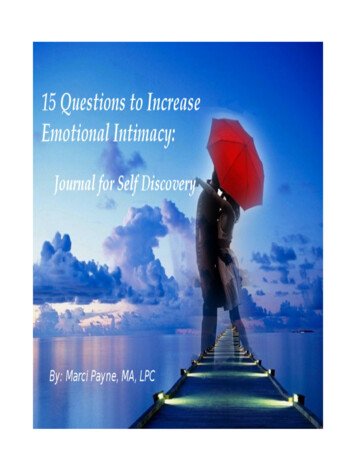
Transcription
15 Questions to Increase Emotional Intimacy:Journal for Self-Discoveryby Marci Payne, MA, LPCRelationship Coach
Copyright 2014, Marci Payne, MA, LPCAll rights reserved. No part of this book may be used orreproduced without the written permission from this author.Marci Payne, MA, LPCLiberating Choiceshttp://liberatingchoices.comDisclaimer:This journal has been compiled for general information purposes only.It is not intended to be a substitute for direct consultation with aqualified mental health professional. The author shall not be held liableor responsible to any person regarding loss or damage allegedlycaused by this information contained in this e-book.If further professional services are needed, the reader acknowledgesthat he/she will consult a qualified professional directly.Cover Photo: 2014, Flickr – Chris Matos - Attribution License
What is Emotional Intimacy?Emotional intimacy describes a way of relating to another person that is personal, open, andcooperative. If you are emotionally intimate, you let someone know you well. And you are ableto talk about a variety of topics with your significant other.The opposite of being emotionally intimate is to avoid or keep to yourself. While I don't advisesharing every thought and feeling you have without a filter, avoiding important topics is oneway people keep their distance. Having different interests or goals is not being emotionallydifferent unless you use them to avoid your significant other.Many people use avoidance to keep the peace even if it's superficial peace. What if youcould find a way to connect without feeling responsible for your partner's feelings andbehavior? Use this journal to brush up on your ability to connect by seeing yourself asemotionally separate. Meaning you create intimacy by allowing you and your partner to beresponsible for your own happiness and actions.How to Use This Journal:Men, women, and couples who consult with me are seeking for someone else to tell them ortheir spouse how to be a better spouse. And most therapist's will start off by having eachperson write down what they need more from the other person. While this is a tempting placeto start, it doesn't help you become more aware of how you are getting in the way ofhaving the relationship that you want with your significant other.While you may be tempted to ask your spouse the questions in this journal, I encourage youto trust yourself. Imagine you are recording yourself, so you can become the best observer ofyourself that you can be. Try not to over-focus on the feedback others give you. Instead reallylook at yourself in the mirror. You will find both positives and negatives if you are truly honestwith yourself.Use the questions in this journal to reflect on what it's like to be in a relationship with you.Self-awareness is the first step to making any kind of lasting change. I have never seenanyone stick to changes when someone else tells them to do it. Use this journal as a way toget clearer on how you currently connect with your loved one.Self- reflection and gaining accurate awareness can be very calming. Once you increase yourself-awareness about your part in emotional distance, it's time to shift from thinking to action.And I would love the opportunity to coach you on your journey to turning relationshipchallenges into opportunities for growth and intimacy.Lastly, I urge you to not use this as a tool for convincing your spouse what he/she is doingwrong. It is a tool for identifying what you need to do or say, so you can learn to bemore intimate with your loved one.
1. What is the best part of being in a relationship with you?
2. What is the hardest part about being in relationship with you?
3. Is it hard or easy to get to know you? Is it hard or easy to get close to you? Explain.
4. When is it easiest for you to be open with your significant other?
5. What thoughts or feelings get in the way of you opening up?
6. In your relationship, who initiates/does most of the talking? What are you really good atinitiating? (talk, touch, time, etc)
7. What percentage of your thoughts and feelings do you tell your significant other? Explainwhether its changed over time.
8. What issues do you avoid or not talk about with your significant other?
9. In your relationship, are you the pursuer or the distancer? When you pursue (or distance),what does your partner do?
10. Who do you talk to about your relationship? Does the person stay neutral or take sides?
11. Is there anyone that knows you better than your significant other? Explain.
12. Is your spouse your best friend, lover, or both? Explain.
13. In summary, what did you learn about yourself during this time of self-reflection. In otherwords, what is it like to be in a relationship with you (the upside and downside)?
14. How can you turn this awareness into new ways of relating to your loved one? Explainhow you will start to shift your part in the relationship patterns you have co-created.
15. Write your own definition of emotional intimacy:
About the Author:Marci Payne is a married, mother of two children living in theKansas City, Missouri area. She is also a LicensedProfessional Counselor and Relationship Coach. Shecoaches men, women, and couples to turn life's challengesinto opportunities for growth and intimacy.Marci received her Masters in Clinical Psychology in 1997,and has been working as a counselor/coach since 1998.She also participates in post-graduate training in BowenFamily Systems Theory.Marci writes for Liberating Choices where she helps peoplefind the choices they never knew they had. She is workingon adding new books and relationship guides. To receivethe latest additions, subscribe to her newsletter.For more information on counseling and coaching services, visit: http://www.marcipayne.comor http://liberatingchoices.comOr stay connected via Twitter or Facebook.
What is Emotional Intimacy? Emotional intimacy describes a way of relating to another person that is personal, open, and cooperative. If you are emotionally intimate, you let someone know you well. And you are able to talk about a variety of topics with your significant other. The opposite of being emotionally intimate is to avoid or keep to .
